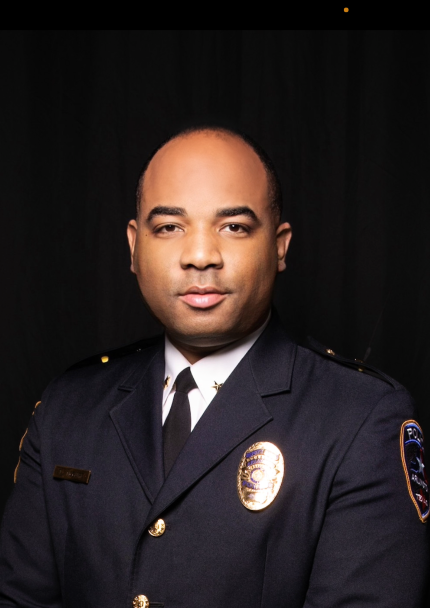Nationwide, tragedies rooted in unconstitutional police use of force catalyzed critical evaluation of police-citizen encounters, particularly encounters among communities of color. Federal, State, and municipal governments heard community calls for reform and assembled persons reflective of all segments of society to evaluate legislation, policy, and procedures that have created systemic inequalities and unfair treatment. Their goal of building a unified path forward has not yet fully been achieved, but we must remain hopeful.
As a national leader in police research and supporter of police in building safer communities, the National Policing Institute sought to contribute to that path forward by focusing on the intersectionality of police, race, and reform. As an African American man, father, and a police executive, I understand many of the lived experiences and complexities associated with community-police relations. After overseeing our department’s response to several protests and working tirelessly to build trust in my local community, I am all too aware of how citizens and police alike have suffered due to unconstitutional actions from some officers who brutally abused their power and failed in their duties to protect and serve.
It is my belief that at the end of the day – all police and communities want the same thing: safe, resilient communities where everyone has the opportunity to thrive. Importantly, both police and the communities they serve have a fundamental role in achieving this vision together. Understanding this responsibility can be rather challenging, but critical dialogue uniting police and communities is an important step in achieving this transformation.
Through this dialogue, it is imperative that we identify commonalities that enhance community safety without compromising officer safety or risking community harm. As we seek solutions in this area, actions have been introduced to reduce police budgets or restrict police actions. Defunding the police is not the answer. Each government entity must evaluate the impact of strategies they seek to employ, eliminating or reducing a police officer’s constitutional authority is not a sustainable solution to address officer misconduct and improve community outcomes. Instead, we should take an evidence-based approach to problem-solving that supports the creation of management systems, review of laws and policies, accountability, transparency, and oversight, while prioritizing the elimination of disparate impacts. In all of these efforts, communities most impacted by police activities must be meaningfully included in identifying public safety priorities and generating solutions to achieve them.
Reaching full consensus on challenging issues can often be complicated, but my hope is that this report provides a framework that is supported by research to transform public safety. Creating safe communities is not solely the responsibility of the police, but we must better understand and support their role in contributing to that objective. Concurrently, we must seek innovative solutions to transform our society’s response to poverty, violence, mental health, and the many other social issues contributing to public safety outcomes. In consideration, that is what this report’s recommendations contributes to transforming community-police relations and our criminal justice system. Finally, it is important that we all stand for justice, fairness, and equitable treatment of all persons, and support the officers who abide by the oath they swore.
It is by progressive action, rooted in moral courage and scientific evidence, that we will continue to make tremendous strides in advancing community police relations.

